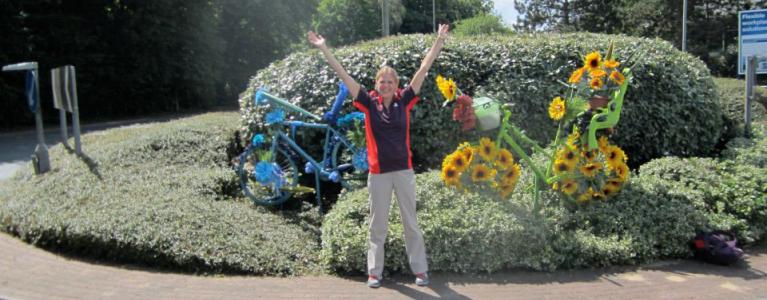
Lisa Pook from City Hall’s environment team remembers the 2012 Games . . .
In 2005, the announcement came that London would host the Olympics in 2012. Back then, I wasn’t working in London. I moved here a year later, and joined City Hall in 2007.
As a sports lover, the Olympics were certainly one of the reasons that the city appealed. So when I got the chance to volunteer at the 2012 Games, I snapped it up. I was desperate to be part of the cycling. My wish came true with three days of Olympic cycling that set my heart racing. When Bradley Wiggins won gold, I was there in the middle of the road with a whistle and my volunteer outfit. I remember it as clearly as yesterday.
Wiggo had just won the Tour de France, the first Briton ever to do so. Here he was in front of me, riding in the men’s time trial. I could tell from the roar of the crowd when he finished that he’d done the business.
That summer wasn’t just about the sport. It was an opportunity to present London to the world. One of the projects I worked on here was Capital Growth, which aimed to create 2,012 new food growing sites in London by 2012. I’ve always been a supporter of local and sustainable food so was delighted to lead it for two years.
I also worked on Changing Places, a project to spruce up grotty spots and turn them into loved public spaces. It was run by LOCOG (the London Organising Committee of the Olympic and Paralympic Games) and Keep Britain Tidy. Over the year, more than 15,000 people and 50 organisations helped improve hundreds of sites in the London host boroughs.
At the same time, the Olympic Park was starting to spring up on what had previously been derelict industrial land. If you visit today, you’ll find over 100 hectares of open space, beautiful waterways and an abundance of local wildlife.
The Games also raised the bar in hosting environmentally-friendly events. The ISO 20121 international standard meant that all the events were run in a sustainable way. That means low energy, low water use, reusing, recycling and encouraging green transport. We now use this standard at City Hall for all our events.
Today, the legacy of the London Games lives on in many ways. I hope Rio will lead to as many, if not more, environmental benefits. Hopefully, there’ll also be more gold medals for our athletes.